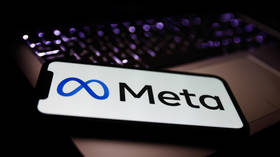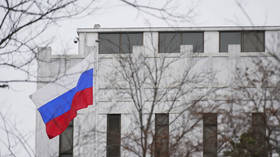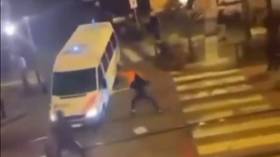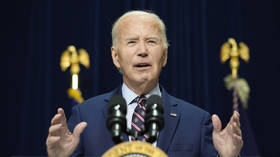Russia to ban Instagram over 'extremist' calls for violence against its citizens

The Prosecutor General of Russia has asked a court to formally designate Meta Platforms, the owner of Facebook and Instagram, as an extremist organization, Russian news agencies reported on Friday. The request came after reports that the US-based social media giant had revised its policy and is now allowing posts that call for violence against Russian citizens, amid Moscow’s military offensive in Ukraine.
Earlier, some Western media reported that Meta had decided to allow “posts on Ukraine war calling for violence against invading Russians or [for Russian President Vladimir] Putin’s death”.
The Russian embassy in Washington called on the US government to “rein in” Meta’s apparent embrace of “extremism.” Kremlin spokesman Dmitry Peskov said the news reports were “hard to believe.”
“This information actually requires very careful verification and study,” the official told journalists on Friday. “We will hope it to be not true, as otherwise a most vigorous action will be required to stop the activities of this company.”
Russian media regulator RKN said on Friday it has demanded from Meta either a formal confirmation or denial of the reports about its hate-speech policy reversal.
The Prosecutor General’s office decided not to wait for a confirmation, however. In addition to seeking a court order to label Meta an extremist entity, it ordered RKN to block access to Facebook and Instagram in Russia.
The statement said the platforms also allowed posts calling for mass rioting by Russian citizens in response to the ongoing Ukraine campaign, which also made restricting access to them necessary.
Commenting on the news, Russian officials said Russian citizens using Meta apps in good faith would not be at risk despite the company’s expectant status as an extremist organization. For instance, using the Meta-owned messenger WhatsApp would not be considered an act of extremism, said Ekaterina Mizulina, a member of the Civic Chamber of the Russian Federation, a body that advises the Russian government on civil society issues.
Senator Andrey Klishas, the chair of the committee for constitutional law in the upper chamber of the Russian parliament, assured that Russians who used various tricks to circumvent RKN attempts to block the Western platforms would not be sanctioned either.
Last month, Facebook revised its policies against dangerous individuals and organizations, and it then allowed posts praising the Azov Battalion, Ukraine’s National Guards unit, which incorporates ultra-nationalist troopers, including many who openly adhere to neo-Nazi ideology and other forms of extremism.













